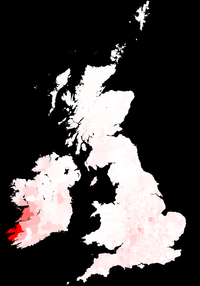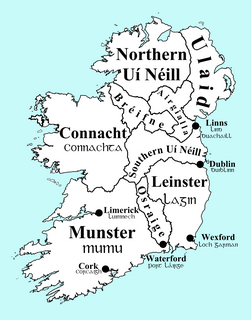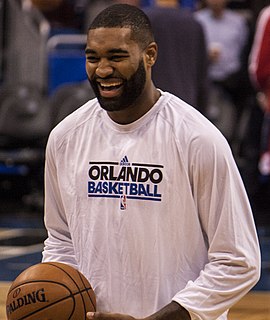
O'Reilly is a group of families, ultimately all of Irish Gaelic origin, who were historically the kings of East Bréifne in what is today County Cavan. The clan were part of the Connachta's Uí Briúin Bréifne kindred and were closely related to the Ó Ruairc (O'Rourkes) of West Bréifne. O'Reilly is ranked tenth in the top twenty list of Irish surnames.
Lee is a common surname in English-speaking countries. And its an english name.
Bradley is an English surname derived from a place name meaning "broad wood" or "broad meadow" in Old English.
Brennan is an Irish surname which is an Anglicised form of two different Irish language surnames—Ó Braonáin and Ó Branáin. Historically, one source of the surname was the prominent clan Ua Braonáin (O'Brennan) of Uí Duach (Idough) in Osraige who were a junior Dál Birn sept stemming from a younger son of Cerball mac Dúnlainge (d.888). Recent surname evaluations highlighted the geographic consistency of this lineage in the barony of Idough.
Quinn is an Anglicised form of the Irish Ó Coinn. The latter surname means "descendant of Conn". The surname Quinn is also rendered Ó Cuinn in Irish. The surname is borne by numerous unrelated Irish families in Ulster and the Irish counties of Clare, Longford, and Mayo. The most notable family of the name are that of Thomond, a Dalcassian sept, who derive their surname from Niall Ó Cuinn who was slain at the Battle of Clontarf in 1014. This family was formerly represented by the Earls of Dunraven. Another family is that seated in Annaly, who were related to the O'Farrell lords of Longford. Other families include one seated in Antrim; one seated in Raphoe; and one called Clann Cuain, seated near Castlebar. In the seventeenth century, the surname Quinn was common in Waterford. In 1890, the surname was numerous in Dublin, Tyrone, Antrim, and Roscommon. Quinn is one of the twenty most common surnames in Ireland. It is sometimes said that the surname Quinn is borne by Catholics whilst Quin is borne by Protestants.
Naughton is an Irish gaelic surname derived from the name Ó Neachtain meaning 'descendent of Nechtan'. A Sept of the Dal gCais of the same stock as Quinn and Hartigan where located in Inchiquin Barony, County Clare.
John or Jack Quinn may refer to:
Flynn is an Irish surname or first name, an anglicised form of the Irish Ó Floinn, meaning "descendant of Flann". The name is more commonly used as a surname rather than a first name. The name rose independently in several parts of Ireland.
O'Dea, is an Irish surname derived from Deághaidh, the name of a tenth-century clan chieftain.

Griffin is a surname of primarily Irish origin. Griffin was the 75th most common surname on the island of Ireland in 1891. It was estimated in 2000 that Griffin is the 114th most common surname in the U.S., with a population in the order of two hundred thousand.
Garvey and O'Garvey are Irish surnames, derived from the Gaelic Ó Gairbhith, also spelt Ó Gairbheith, meaning "descendant of Gairbhith". Gairbhith itself means "rough peace".
Kelleher is an anglicized spelling of the Irish surname derived from Ó Céileachair, meaning "descendant of Céileachar"; Céileachar is a personal name for "spouse-loving", "companion dear", or "lover of company". Kelleher is variably translated from the Irish to Kelliher, Kellegher and Keller.
Hughes is an Anglicized spelling of the Welsh and Irish patronymic surname of French origin. The surname may also be the etymologically unrelated Picard variant "Hugh" of the Germanic name "Hugo".
Christian Brothers' High School, Lewisham, is a Roman Catholic, day school for boys, located in Lewisham, an inner-western suburb of Sydney, New South Wales, Australia.
Colin is an English-language masculine given name. It has two distinct origins:
- A diminutive form of "Colle", itself an Old French short form of the name Nicolas (Nicholas). This name, but not the anglicized Gaelic name, is also found in the spelling Collin. This name is formed by the Old French diminutive -in also found in Robin.
- An anglicized form of the Gaelic name Cuilen, Cailean, modern Irish spelling Coileáin, meaning "whelp, cub". The Old Irish word for "whelp," is cuilén. The Scottish Gaelic name is recorded in the spelling Colin from as early as the 14th century. MacCailean was a patronymic used by Clan Campbell, after Cailean Mór.
Tyler is an English name derived from the Old French tieuleor, tieulier and the Middle English tyler, tylere. The name was originally an occupational name for one who makes or lays tiles. It is used both as a surname, and as given name for both sexes. Among the earliest recorded uses of the surname is from the 14th century: Wat Tyler of Kent, South East England.
The surname Hurley has become the English version of at least three distinct original Irish names: the Ó hUirthile, part of the Dál gCais tribal group, based in Clare and North Tipperary; the Ó Muirthile, from the environs of Kilbrittain in west Cork; and the Ó hIarlatha, from the district of Ballyvourney, also in Cork, whose name is more usually anglicised "(O')Herlihy". The principal concentrations of Hurleys are today found in counties Tipperary and Limerick, where they spread from the original Dalcassian homeland, and in Cork. An interesting example of the pseudo-translation of surnames is found in Clare, where some whose name was originally Hurley have now adopted the surname "Commane", since the Irish for the hurley-stick used in the sport of hurling is camán while the name "Commane" does not originate from that source.

Martin may either be a surname or given name. Martin is a common given and family name in many languages and cultures. It comes from the Latin name Martinus, which is a late derived form of the name of the Roman god Mars, the protective godhead of the Latins, and therefore the god of war. The meaning is usually rendered in reference to the god as "of Mars", or "of war/warlike" ("martial").

Kelly is a surname in the English language. The name has numerous origins. In some cases it is derived from toponyms located in Ireland and Great Britain, in other cases it is derived from patronyms in the Irish language.
Curtis or Curtiss is a common English given name and surname of Anglo-Norman origin derived from the Old French curteis, which means "polite, courteous, or well-bred". It is a compound of curt- ″court″ and -eis ″-ish″. The spelling u to render [u] in Old French was mainly Anglo-Norman and Norman, when the spelling o [u] was the usual Parisian French one, Modern French ou [u]. -eis is the Old French suffix for -ois, Western French keeps -eis, simplified -is in English. The word court shares the same etymology but retains a Modern French spelling, after the orthography had changed.






